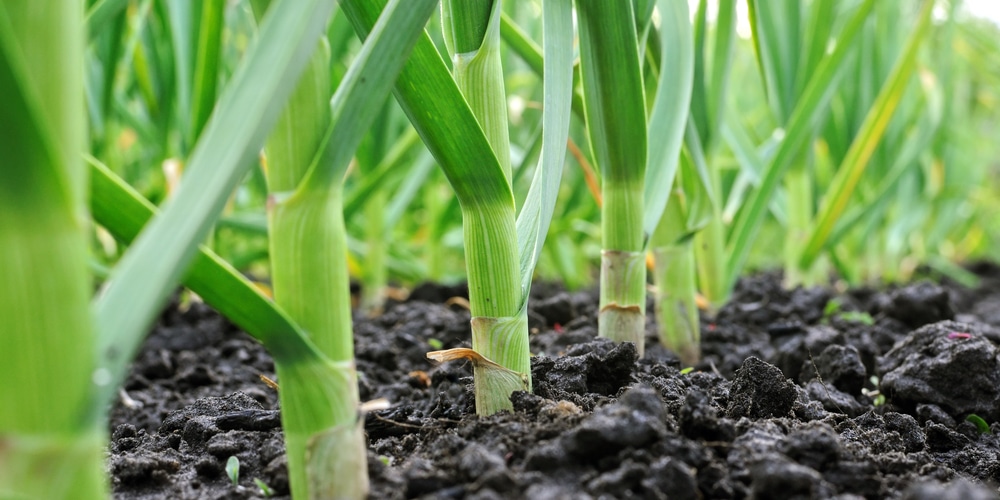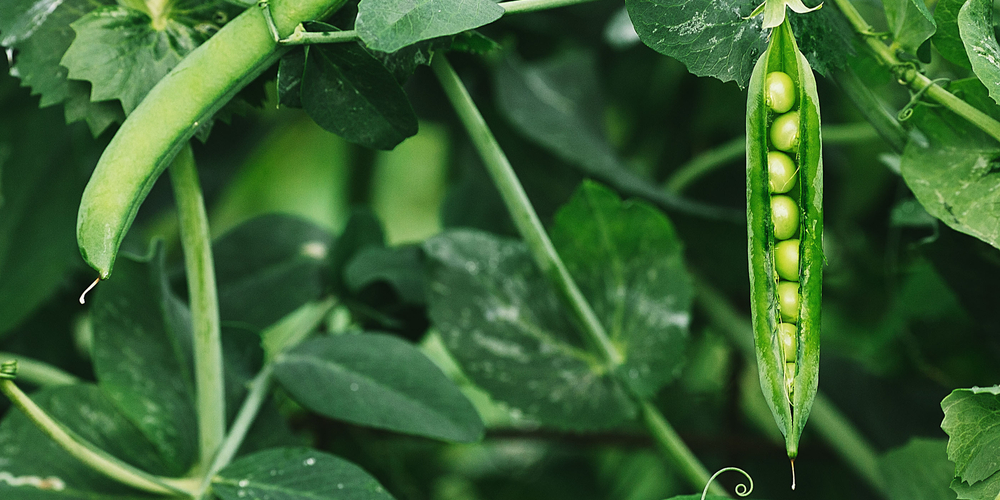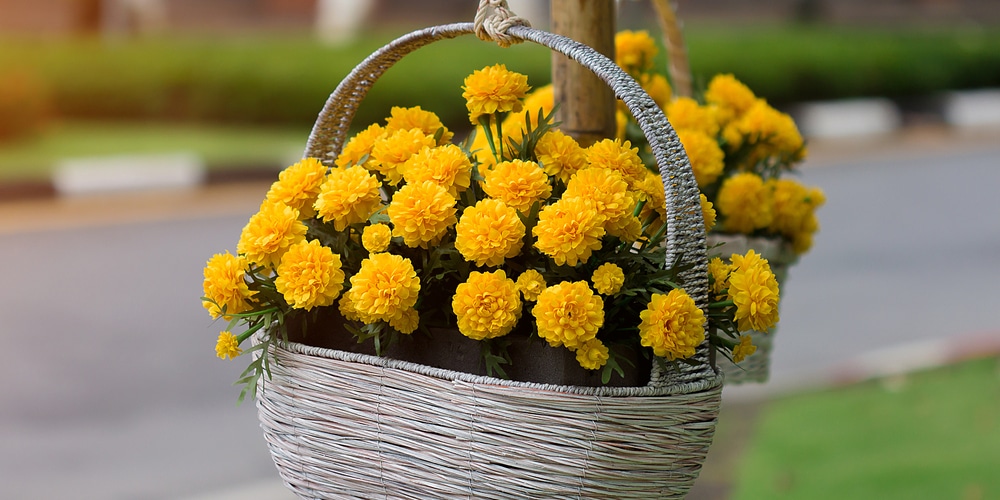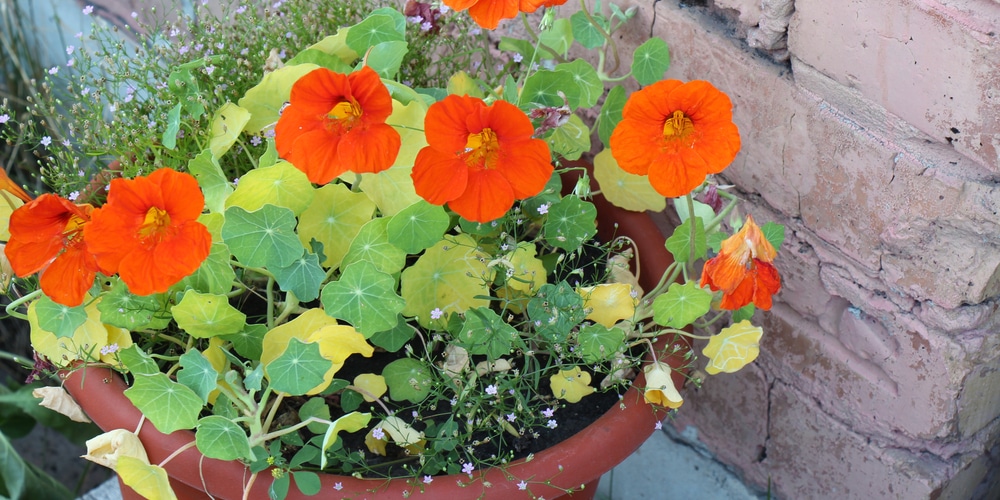Summer means a lot of things. For gardeners, when the earth comes back to life again and the weather starts getting warmer, this means it’s time to start planting summer squashes.
Your favorite zucchini is just one of the many summer squashes you can plant and enjoy during the hot weather. Other summer squash varieties include cousa, pattypan, zephyr, crookneck, tromboncino, tatuma, and tinda. These squashes are prolific growers, which means you only need a few seeds to get a good supply of summer squashes all throughout the summer.
Wondering what plants can help your summer squash grow at its best? Below are some summer squash companion plants you should know about.
How summer squash can benefit from companion planting
Human beings live happier when they are surrounded by great people. The same with plants. When you surround a plant with vegetables, herbs, and flowers that offer some benefit to it, the plant will thrive and bear fruits. This practice is called “companion planting” in gardening.
This symbiotic relationship is called mutualism which means that the plants are benefiting from one another. How can summer squashes benefit from companion planting? Good neighbors will help your summer squash plants combat pest infestations, improve pollination, and give nutrients to the soil.
Nitrogen-fixing companion plants will add nutrients to the soil. Summer squashes are heavy feeders, and they need a lot of nutrients to grow and bear flowers. Since nitrogen is a gas and summer squashes cannot get them in the air, you need to add nitrogen directly to the soil. The easiest way to do this is to plant nitrogen-fixing plants close to your summer squashes.
One major problem with growing summer squashes is poor pollination. This is why many farmers resort to hand pollination, but with companion plants, you don’t have to do this. There are plants that can attract pollinators to your garden to make sure that you get bountiful harvests after 45 to 60 days of planting them.
Summer squashes have to be checked daily for pest infestations. They’re just so attractive to harmful insects such as squash beetles, powdery mildew, downy mildew, aphids, cucumber beetles, squash vine borers, and squash bugs. You can use companion plants as trap crops to divert the attention of these insects from your summer squash plants.
What plants do well with summer squashes?
Summer squash companion plants can help you achieve the growth requirements for summer squashes with minimal effort. Take note that summer squashes need 6 to 8 hours of direct sunlight, rich, well-draining soil, and 1 inch of water weekly.
They need improvement in pollination and ways to outsmart their common pests. Below are some plants you can pair with summer squashes for them to grow and thrive.
1. Garlic
Mold is a common problem with summer squashes. You can easily spot mold when you just take a look at the leaves of the plants. This problem is caused by powdery mildew, which is very common with squashes. Leaves that are affected by powdery mildew will soon wither and fall to the ground. This will expose the fruit to the sun, which is not beneficial. One way to address this problem is to plant garlic in close proximity to summer squashes. Garlic is a natural disinfectant and works well with fungi.
2. Peas
Summer squashes are heavy feeders, and in order for them to grow and bear fruit, they need a lot of nutrients from the soil. What you can do here is to plant peas, not between summer squash plants, but at their back. Peas are climbers, and they need support to spread out and grow. Peas are nitrogen-fixing plants. This means that they can provide nitrogen to the soil. They do this by drawing in nitrogen from the air and storing it in their roots.
3. Turnip
Turnips are great natural aphid repellents. When you plant them with summer squashes, they keep aphids from infesting your crops. Turnips also add nutrients to the soil because they have nitrogen-fixing peas. What makes turnips a great neighbor for summer squashes is that they don’t take up space that much. Summer squashes require plenty of room to grow.
Turnips won’t take this space. They have a large root that won’t be a disturbance to the summer squashes. Turnips are also thin at the base, so your crop will have all the space that they require.
4. Marigold
The colorful flowers of marigold can instantly brighten up your garden. If you want to have some beautiful flowers that can also benefit your summer squash crops, go for marigolds. This plant also has pest-repellant properties. They help neighboring plants be free of harmful bugs.
Marigold repels aphids, beetles, nematodes, and squash bugs with its strong smell. These insects can threaten the growth of your summer squashes. It never hurts to add some marigolds to your garden, because you need the most natural pest-repellant that you can get for summer squashes.
5. Nasturtium
Since summer squashes need help pollinating, add some nasturtiums to your garden. When nasturtiums bloom, they attract a lot of pollinators, including bees. This plant is also effective in repelling harmful insects that can damage summer squashes.
Nasturtiums are best known as trap crops. They attract aphids and squash bugs, so they don’t attack summer squashes. They also attract hoverflies, which are predators of aphids.
6. Mint
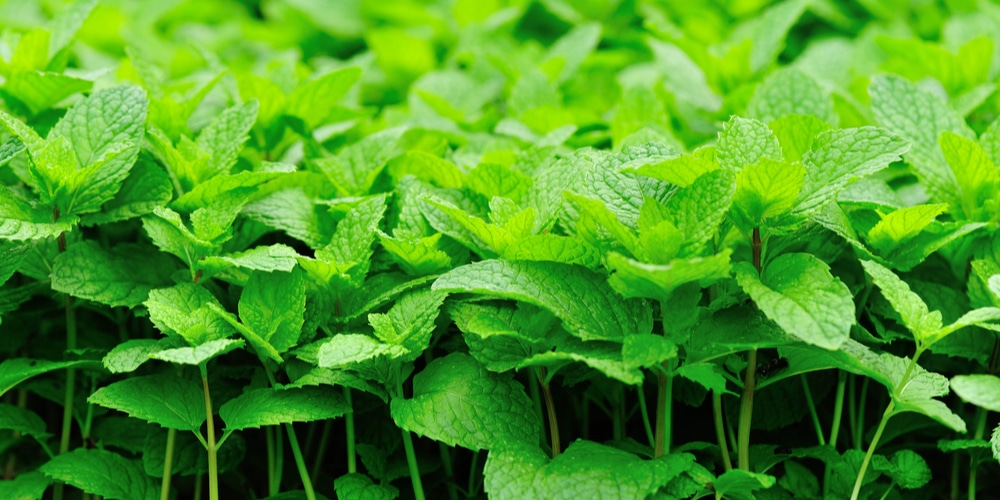
Mint is another natural pest repellant. This plant attracts beneficial insects and repels harmful ones. They don’t need much attention because they are very low maintenance. Mint also repels mosquitoes, which is a very common problem in gardens.
7. Sunflower
If you want to grow sunflowers in your garden but are quite discouraged by the thought that they can harm your summer squashes, no need to worry. Sunflowers grow well with summer squashes. The same with corn. Sunflowers and corn can greatly benefit from summer squashes because their leaves perfectly cover the ground, preventing weed infestation.
Summer Squash Companion Plants: Conclusion
The plants mentioned above are just some of the best summer squash companion plants. If you want the most effective companion planting strategy, try planting the “three sisters.” Plant squash with corn and beans. Bad companion plants for summer squashes include pumpkins, potatoes, and cucumbers. These plants are heavy feeders and have the same growth habit as summer squashes. This will start competition which is not beneficial.
